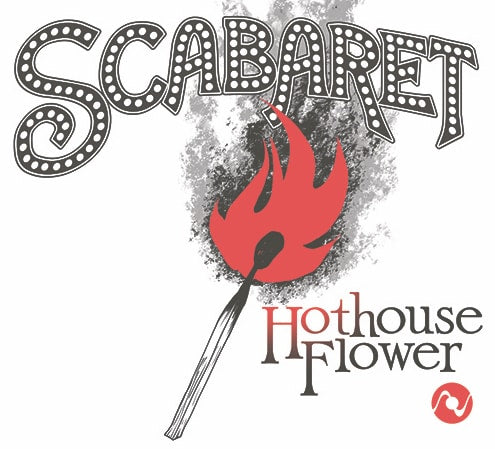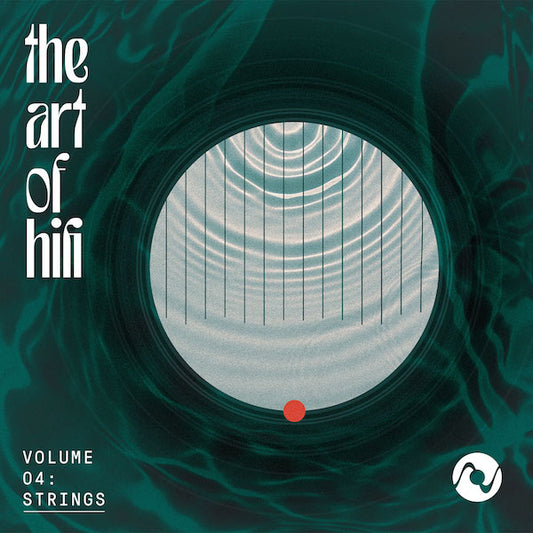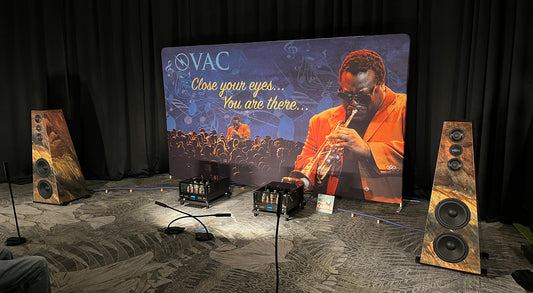It’s cabaret and beyond for the modern world: Octave Records is proud to announce the release of Hothouse Flower by Scabaret, three multi-talented women who combine impassioned vocals, virtuoso piano and viola playing, drawing from a variety of diverse musical influences to create an album of modern cabaret pop.
Vocalist Hannah Jackson can soar to operatic heights, as on “Casualty,” or invite listeners into an intimate emotional world, from the dramatic “Scabaret” to the pensive “Life at Lightning Speed,” and its reflections on the transitory nature of being. In fact, Jackson was a contestant on the TV show The X Factor. Songwriter Amy Faris is stunning on acoustic and electric pianos, synthesizers and other instruments. Violist Kimberly Sparr has performed with numerous symphony orchestras and in solo, chamber music and orchestral settings. The result is a blend of jazz, classical, theater, pop and other uncategorizable influences, with a stylistic and sonic range that is captured with sonic depth, nuance and detail.

Amy Faris, Kimberly Sparr and Hannah Jackson of Scabaret.
Hothouse Flower was recorded at Animal Lane Studios in Lyons, Colorado using Octave Records’ Pure DSD process and the Sonoma multi-track DSD recording system. It was mixed at PS Audio in Boulder, CO. Hothouse Flower (SRP: $39) is playable on any SACD, CD, DVD, or Blu-ray player. It also has a high-resolution DSD layer that is accessible only using a PS Audio SACD transport, or by copying the DSD tracks on the included DVD data discs. In addition, the master DSD and PCM files are available for purchase and download (including DSD64, DSDDirect Mastered 192kHz/24-bit, 96kHz/24-bit and 44.1kHz/16-bit PCM) at $29 SRP from psaudio.com at this link. The album was recorded, mixed and produced by Scott Faris and mastered by Gus Skinas. Additional work was done by Zach Balch, recording engineer, and Giselle Collazo, assistant mix engineer. Octave Records’ Jessica Carson was the executive producer.
The women of Scabaret are not afraid to wear their hearts on their sleeves, or delve into the complications and difficulties of relationships and life, as “Life at Lightning Speed” notes: “Wanna try every door before I go/Wanna say yes to every dance and never leave an ‘I love you’ to chance.” There’s plenty of humor, laced in lyrics like: “I am much better on paper/And you are much better off if I stay here” from “Better On Paper,” a song that mixes lush electronic keyboards, Kimberly’s viola punctuations, and the recorded sounds of a clacking typewriter and ripping paper.
I interviewed Amy, Hannah and Kimberly, along with engineer/producer Scott Faris, about the making of Hothouse Flower.
Frank Doris: The first obvious question is, how’d you come up with the name Scabaret?
Amy Faris: Well, I wrote a song called Scabaret and Hannah was at my house, learning some of [our] new [material], and she said, “well, what if we just name the band after the song?” I feel like the “scab” part of it comes from kind of a wound. We all kind of have wounds we accumulate during our lives. And eventually they scab over and we become stronger because of them. [“Scabaret” is a] very dramatic song, full of tumult. But then at the end there’s some type of healing.
FD: You’re not afraid to wear your hearts on your sleeves. On the other hand, there’s a lot of humor laced in the lyrics. How do you wind up having those two things happening at the same time?
Hannah Jackson: That’s kind of who we are. We are strong dynamic, multifaceted women. So, that naturally comes out in our music and our performances. We take people through the low lows and the high highs, and all the colors that go into the mosaic of life, and that’s how we approach all of those topics, from our experiences as women. We can be serious and contemplative and then turn it around and be silly and jamming out and making everybody have a good time. And, you know, that is required a lot of the time.
FD: Especially these days.
Now comes the inevitable question: how did you get together? You all have such different backgrounds. Hannah, you were a vocalist on The X Factor. Kimberly, you’re a classically-trained viola player. Amy, you write songs and play piano and encompass a huge variety of styles. Hannah and Amy, I see you’ve been working together for around 15 years. How did Scabaret come about?
AF: It was completely an accident. I had a friend at a little dive bar in town who said, “Hey, we’re doing a series [about] women musicians in Lubbock {Texas]. Would you like to play some of what you’ve written? And I was like, “no, I absolutely would not!” ‘Cause I hate solo piano gigs! “But,” I said, “I have written a ton of new songs.” And so, I thought I’d get Hannah to sing these songs. Then I ran into Kimberly at a party [and asked her to play viola]. And then it just exploded and took off. People liked it.
Kimberly Sparr: The very first time I met Hannah was at a ballet performance. Amy [and Scott] wrote a score for a ballet. I was in the string quartet and Hannah sang some of the pieces. So, I totally on board when [Amy] asked me to do [the recording].
FD: Did you just come in with this concept of a modern-day musical cabaret, or did that happen by accident?
AF: I don’t know! I feel like with [this group of people] we can do any style in the world. The sky’s the limit. So, [the record] just kind of expanded into a bunch of different styles.
FD: How do you come up with your song ideas? Do they just pop into your head or do you labor over them for, like, 20 years?
AF: Some of both. The songs on the album range from the early 2000s all the way to last May, which is when I wrote “Life at Lightning Speed.” Usually, a lyric will come first and I just keep my phone with me all the time and type [ideas] into Notes. Sometimes I’ll be doing something really mundane like driving or vacuuming. I’ll get an idea for a little bit of a melody with a lyric, and then it’s just a matter of making myself sit down at the piano, and parts come to me through the day. Who knows how long a song will take? “Who Loves Me” took five years.
FD: You recorded Hothouse Flower mostly live in the studio.
KS: Yes. But there was a lot of pre-record preparation.
FD: What about the typewriter on “Better On Paper”?
Scott Faris: Hannah actually performs that live during their shows. The typewriter that’s on the album cover liner notes is the actual typewriter [used in the recording].

Zach Balch (recording engineer), Kimberly Sparr, Amy Faris, Hannah Jackson, Faith Drake (vocalist on “Who Loves Me”), and Scott Faris.
FD: There’s a lyric in “Scabaret”: “the blues in her hair.” That’s so abstract that it stood out and hit me. Where’d that come from?
AF: Scott colors my hair and there’s blue in it usually. And I like the idea of the blues as sadness. And also from a painterly aspect, just thinking about a woman [being] painted; there’d be blue tones in her hair.
KS: People who have gray hair, some have that blue wash and I thought [that’s what it meant]!
FD: Speaking of humor: you quoted the theme from Hawaii Five-O at the end of “Burn” …that must have been deliberate!
AF: I like to put little musical jokes in and see if anyone notices. No one has mentioned it except you.
FD: Well, they’re not music writers, are they? (laughter)
Hannah, what was it like to be on The X Factor TV show? The liner notes mention you were on it.
HJ: That was about 10 years ago and it was an interesting experience. It was very “Hollywood.” I learned a lot about being behind the scenes of a reality show like that. It really did give me a leg up. I got to meet Simon Cowell who kissed my face four times, and he is delicious. He is yummy, yummy, yummy, a sweet man. All of that meanness or whatever is just for television. He’s actually a fine-hearted person.

Kimberly, Amy and Hannah.
FD: Would the album have turned out any differently if the pandemic hadn’t happened? And, in the liner notes you mention that your sister as having health issues. How did that affect what you did for the album?
AF: The pandemic has slowed us down as a group. I don’t know that the album would have been a lot different, though, because I wrote most of these songs before the pandemic. “Life at Lightning Speed” is one of the songs I’m most proud of. And I do feel that the pandemic influenced that really heavily. Good news: my sister is cancer-free at this point. She’s doing well.
HJ: I can only speak for myself, but as a performing artist, going through a pandemic [gives you a desire for] quality over quantity. So, we are compiling a list of quality shows that we want to do. We don’t want to play every restaurant gig available. And, we want to travel.
SF: I have something I want to add. “Scabaret” is actually the first song they recorded [at Animal Lane Studios] and it was earth-shattering. Amy and Kimberly were in the same room [when they recorded the track], so the piano and the viola are bleeding all over. We did have Hannah in a booth because I wanted to get a really intimate vocal performance from her and be able to [mix] her on top of the band, because if a vocalist is standing near a grand piano, sometimes that’s tough [to get a good balance]. Being in the control room in that moment was vsceral. This being recorded on DSD was an earth-shattering revelation for all of us sonically. To finally hear the emotion in Hannah’s voice, the emotion in Kimberly’s playing, to literally hear not just the bowing, but almost the individual, for lack of a better term, grains of it. It’s so lush, so gorgeous. The resonance of that piano. It was literally almost a “moved to tears” moment.
HJ: I actually did cry, Frank, in that moment, because it was the first time I heard my voice like that. The camaraderie of that experience of all of us together and hearing [the music] so clearly was, oh, it was overwhelming.
AF: It was a little scary on our end because yeah, you could hear every breath and every little movement and you could hear my foot hitting the [piano] pedals and you know, it was kind of like, yikes, this is so exposed. Um, it, it sounds beautiful. I’m so glad [the engineers] were actually able to capture those little human moments.

Microphones used in the recording of Hothouse Flower.




